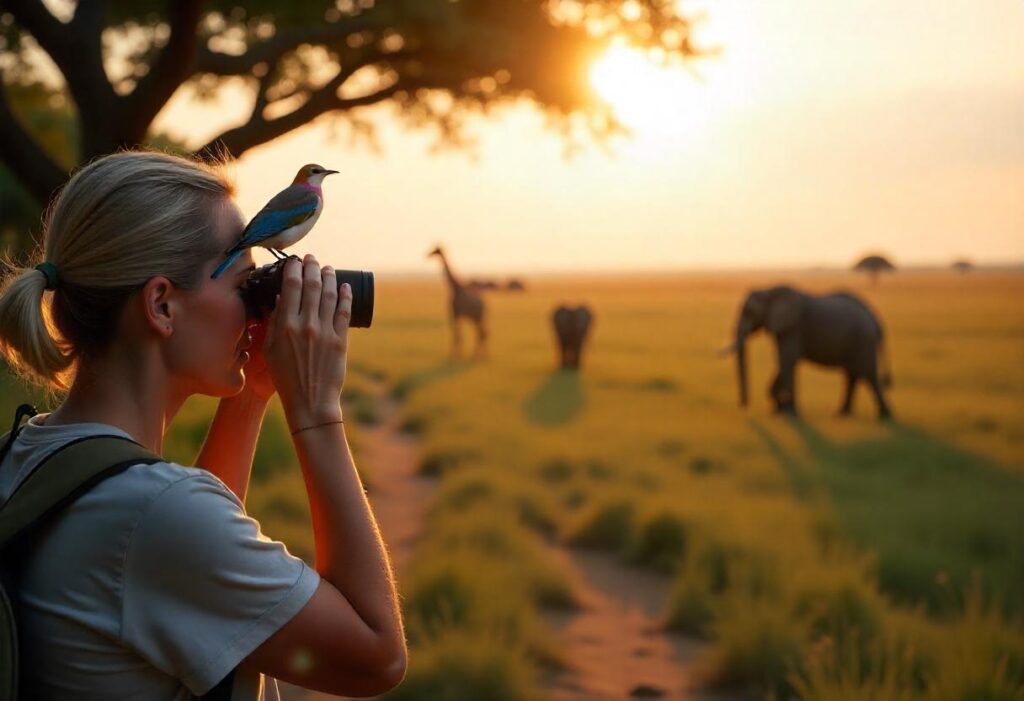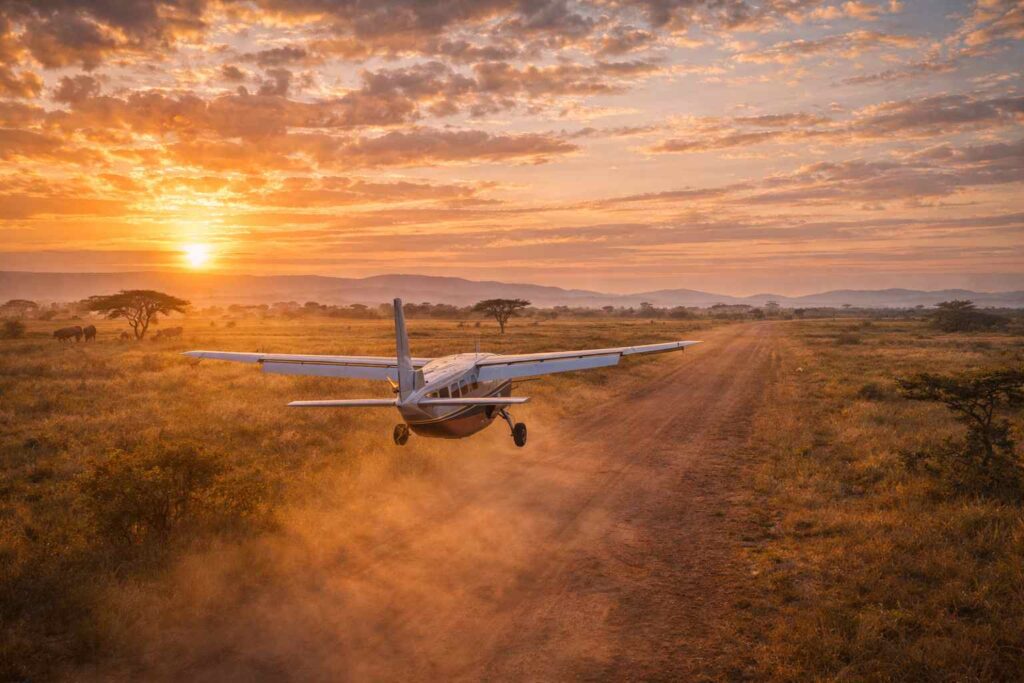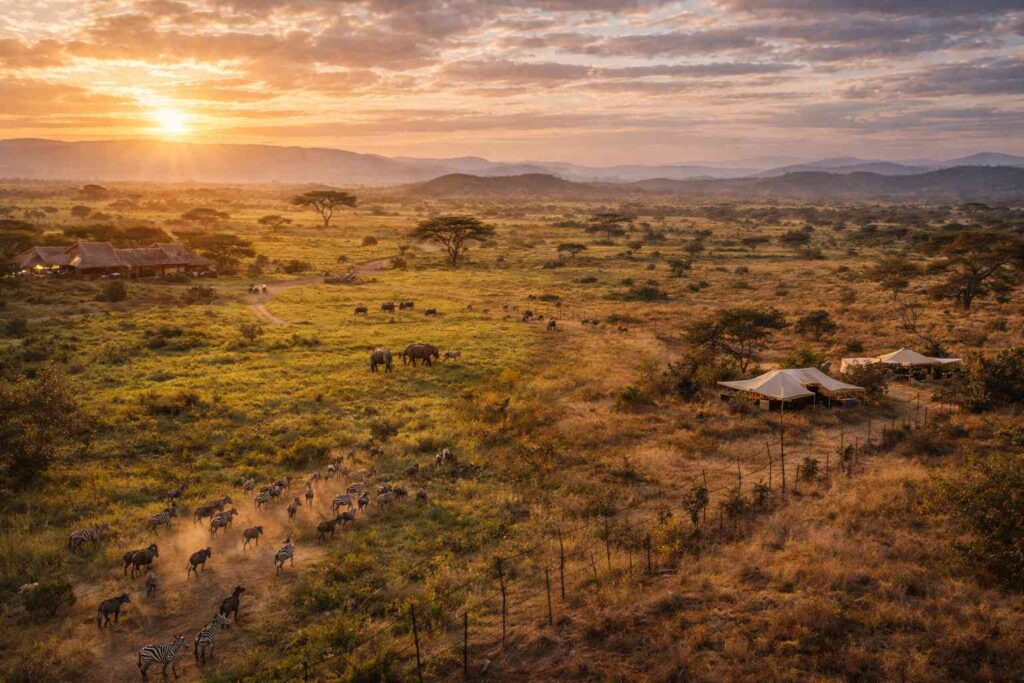When planning an African safari, most travelers dream of seeing lions, elephants, and giraffes up close. But what many don’t realize is that Africa is also home to some of the world’s most spectacular birdlife — and combining birdwatching with a traditional big game safari can elevate your experience in unexpected ways.
Whether you’re a first-time visitor or a seasoned wildlife enthusiast, here’s how to make the most of both worlds.
Why consider adding birdwatching to your safari?
Birding enhances your wildlife awareness
Birdwatching teaches you to slow down and notice the smaller details — sounds, movements, habitats. This attentiveness often leads to more meaningful big game sightings too, as guides track both birds and mammals using similar clues.
Africa’s birdlife is rich and accessible
Africa hosts over 2,300 bird species, many of them colorful, rare, or migratory. From the lilac-breasted roller to the shoebill stork, there’s something captivating for even casual observers — no specialist knowledge required.
It fills the quiet moments
Game drives naturally have quiet patches when large animals aren’t visible. Birdwatching fills those gaps with constant discovery, keeping the experience immersive and exciting throughout the day.
Best destinations for combining birding and big game
Kenya and Tanzania
These classic safari countries are known for the Big Five but are also home to species like the superb starling, secretary bird, and hornbills. Parks like Lake Nakuru and Ngorongoro Crater are perfect for spotting both animals and birds.
Botswana
The Okavango Delta and Chobe National Park offer some of the best birding in Southern Africa, alongside excellent chances to see elephants, buffalo, and predators in floodplain ecosystems.
Uganda and Rwanda
While known for gorilla trekking, these regions are a dream for birders, with rare species like the green-breasted pitta and great blue turaco, plus traditional savannah game in places like Queen Elizabeth National Park.
South Africa
Kruger National Park is ideal for a mixed safari: over 500 bird species and easy access to the Big Five, with excellent infrastructure and guide knowledge.
When to go: timing matters
Dry season (June to October)
- Best for big game sightings as animals gather at water sources.
- Vegetation is thinner, making bird and mammal spotting easier.
- Fewer migratory birds, but excellent for resident species.
Wet season (November to April)
- Peak birding season due to migratory arrivals and breeding activity.
- Lush landscapes and fewer tourists.
- Calving season also brings dramatic predator-prey action.
For the best of both, consider shoulder months like May or November, when birds are active and game is still visible.
How to structure your safari for both experiences
Choose guides with birding knowledge
Many camps offer specialist birding guides, or generalist guides with strong bird ID skills. Let your tour operator know birdwatching is a priority — even if it’s secondary to big game.
Mix habitats in your itinerary
Include both open savannah (for big game) and wetlands, forests, or lakes (for birding). A multi-destination trip increases the diversity of sightings.
Balance game drives with walking safaris or boat trips
Walking safaris and boat rides often allow better opportunities for spotting and photographing birds up close — and provide a nice change from the vehicle routine.
Essential gear for a mixed safari
- Binoculars (8×42 or 10×42) for both birds and mammals
- Field guide or birding app for on-the-go identification
- Camera with zoom lens (ideally 300mm or more)
- Notebook or checklist if you enjoy logging species
- Neutral clothing and a hat, useful in all safari environments
Final thoughts
You don’t need to be a birding expert to enjoy Africa’s incredible avian life. By combining big game and birdwatching, your safari becomes richer, more varied, and more rewarding. Whether it’s a lion on the hunt or a bee-eater catching insects mid-air, Africa has something wild waiting around every corner.
FAQs
Not at all. Birdwatching on safari is enjoyable for beginners too, and guides will help identify species and explain their behaviors.
Yes, many safari lodges can provide guides who specialize in birding — just mention this preference when booking your trip.
Not necessarily. Many birding opportunities happen during the quieter moments between big game sightings, making it a natural complement.
The wet season (November to April) is ideal due to migratory birds and breeding activity, but many regions offer excellent birding year-round.
Yes — Kruger, Serengeti, Okavango Delta, and Queen Elizabeth National Park are all great for combining both experiences.






